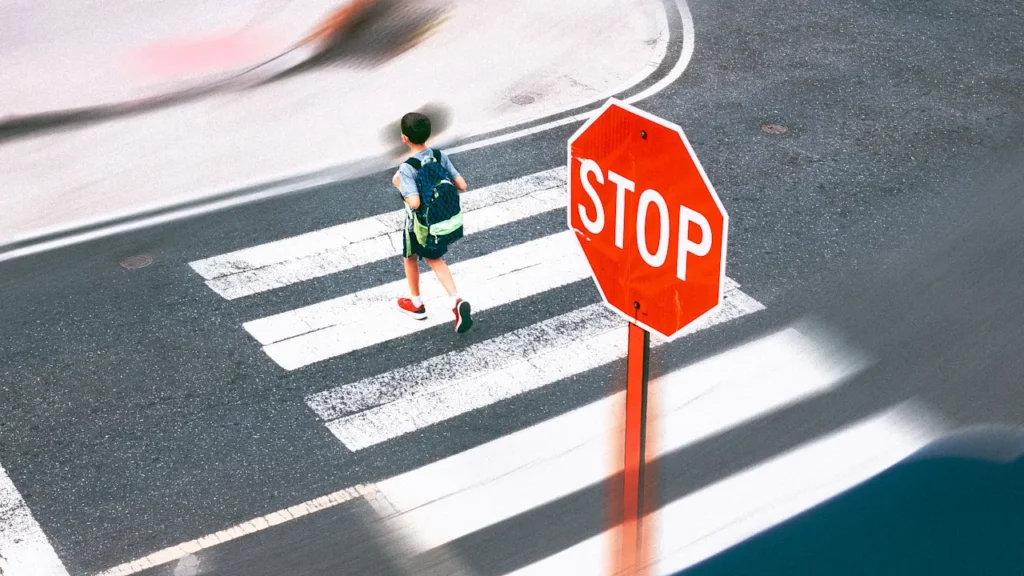
Earlier this week, communities around the world observed World Day of Remembrance for Road Traffic Victims. It’s a day to honor those we’ve lost and recommit ourselves to preventing future tragedies. As someone who’s worked in the transportation industry for more than 25 years, I come at this topic as an insider.
You may have heard the term “Vision Zero” in local political campaigns or public safety PSAs. Vision Zero is a strategy to eliminate all severe crashes. It’s not just a marketing campaign, it’s an approach to road safety that begins with this basic understanding: Severe crashes are preventable.
The status quo believes the fantasy that traffic violence is inevitable. That there’s nothing we can do. The truth is, we can prevent severe crashes.
Every day, another 100 families are grieving the loss of a loved one. Every day, thousands of families are dealing with medical bills, physical therapy, loss of work, loss of mobility.
Vision Zero is the strategy to end this pain and suffering. It’s a wildly different approach from the status quo in two major ways:
- First, people make mistakes. A transportation system needs to be designed so that when people do make mistakes, it doesn’t result in a death or serious injury.
- Second, safety is multidisciplinary. People are influenced by more than just street design. In Richmond, 1 in 12 residents is dealing with a combination of substance abuse and mental health disorders. And then they get behind the wheel of a car.
In other words, Vision Zero is a practical strategy to save lives that’s based on understanding human nature. So if we know how to fix this crisis, why isn’t culture changing? It’s because the average person needs to hear the personal stories about the victims of traffic violence.
The power of emotion
Any historian or psychologist will tell you that facts alone don’t move humans to action. Emotion moves us. It’s hard to admit, because on some level we all want to think of ourselves as rational and logical creatures. But it’s when we get emotionally attached to something that we take action.
That might sound overwhelming, but let me give you an example of how culture changed just in my lifetime, and not at all based on logic.
In a 10-year period, about 13 Americans died from peanut allergies. Each one of those cases was tragic. But in that same 10-year period, over 400,000 Americans were killed in traffic crashes. And that’s not even counting the millions injured.
13 deaths from a chemical reaction in the body versus 400,000 deaths from preventable crashes.
An entire generation of kids was led to believe that peanuts might send one of their classmates to the hospital. The peanut became a boogeyman in neighborhoods across the country. Now you can’t get a bag of peanuts near a school, or a soccer game, or a birthday party, or even on some airplanes.
In a very short period of time, America mobilized for a Peanut Vision Zero.
Change is possible
I’m telling you this not to mock people who have to be careful around nuts, but to tell you our culture is capable of radical change in a short period of time.
So when it comes to road safety:
- We have the data explaining what’s causing tragedies.
- We have the engineering and enforcement solutions to prevent tragedies.
- We can change culture. We can stop the tragedies.
Whatever your background, your economic status, your education level, your job status—you’re a human being who interacts with other human beings. Get people emotionally connected to the impacts of traffic violence. There are many ways you might choose to do that. Maybe it’s playing a short video at a PTA meeting of a heartbroken parent talking about their child who was lost in a preventable crash. Maybe it’s inviting a survivor who’s dealing with life-altering injuries to speak at a local forum.
No severe crash is acceptable. If you truly believe that, you’ll drive carefully and you’ll be the person in your friend group who’s always pressing on others to drive carefully.
We’ve seen culture change in small and large ways. We can do this together. We can reduce life-altering crashes down to zero.


